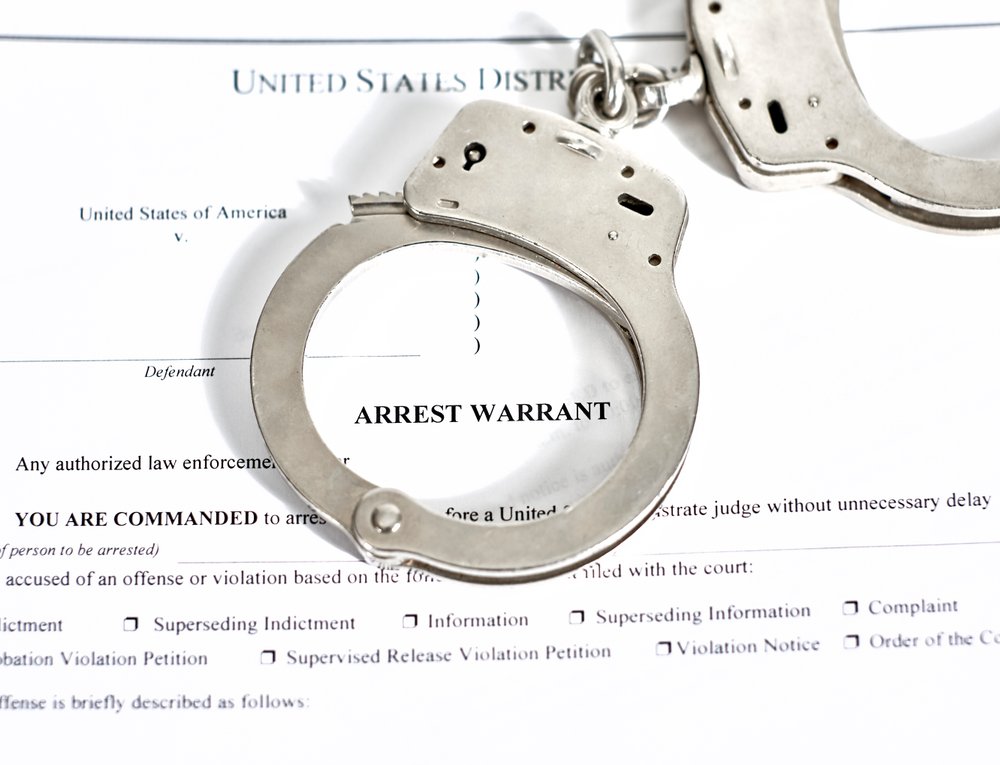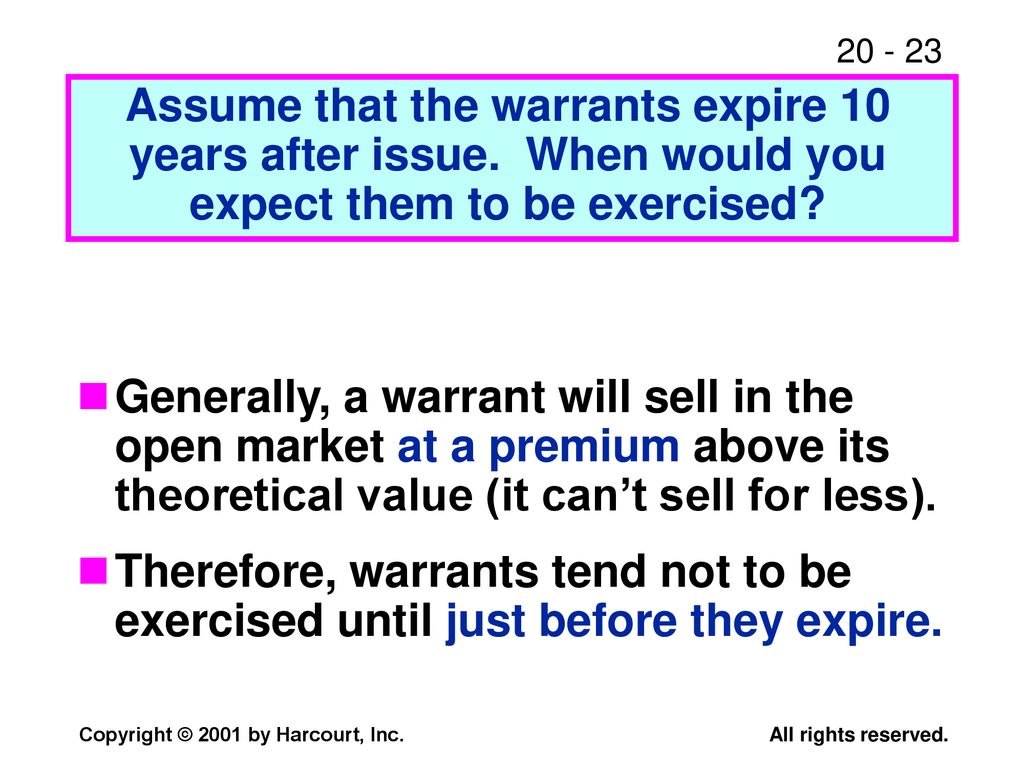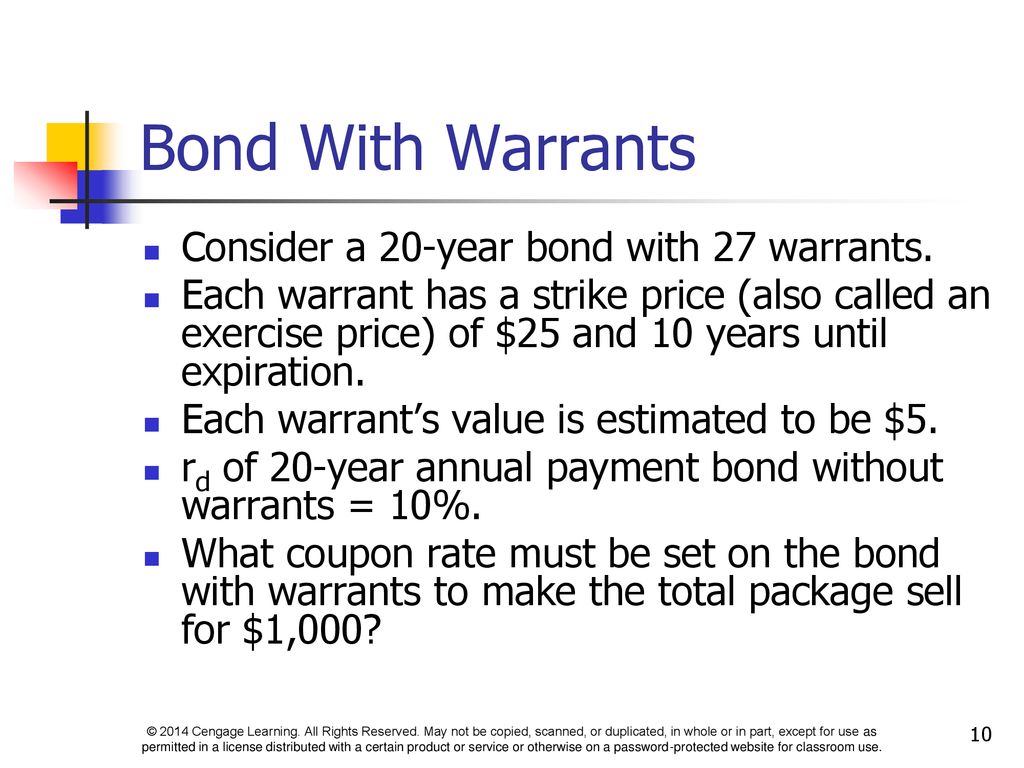Do Warrants Expire After 7 Years

Imagine a dusty box in a forgotten corner of your attic, filled with old documents – stock certificates, faded photographs, and perhaps, tucked away amongst them, a stock warrant you vaguely remember receiving years ago. You might wonder, as you sift through these relics of the past, if that warrant, like the memories it stirs, still holds any value. The question of whether warrants expire, particularly after a common benchmark like seven years, is one that could potentially unlock hidden treasure or, conversely, confirm that time has indeed marched on.
This article delves into the lifespan of stock warrants, specifically addressing the common misconception that they automatically expire after seven years. While seven years is a frequent term in the warrant world, understanding the nuances of warrant agreements is crucial to determining their true expiration dates and potential value. We will unpack the factors that influence a warrant's lifespan, explore real-world examples, and provide resources for further research to help you navigate the often-complex world of warrants.
What Exactly is a Stock Warrant?
Simply put, a stock warrant is a certificate that grants the holder the right, but not the obligation, to purchase a company's stock at a specific price (the exercise price) within a specific timeframe. Think of it as an option to buy stock at a pre-determined price, regardless of the market price. Warrants are often issued by companies to raise capital, as part of a debt offering, or as an incentive for employees or investors.
Unlike stock options, which are typically issued to employees, warrants are often publicly traded and can be bought and sold like stocks. The value of a warrant is derived from the underlying stock's price; if the stock price is significantly higher than the warrant's exercise price, the warrant becomes more valuable. Conversely, if the stock price remains below the exercise price, the warrant may be worthless.
The Myth of the Seven-Year Expiration
The idea that warrants automatically expire after seven years is a widespread misconception. There is no universal law or regulation that dictates this timeframe. The expiration date of a warrant is explicitly stated in the warrant agreement, the legal document that governs the terms and conditions of the warrant.
While seven years is a common expiration period, it's by no means a standard. Some warrants may have shorter lifespans, such as two or three years, while others can last for ten years or even longer. It's also possible, though less common, for warrants to have perpetual existence, meaning they never expire.
Factors Influencing Warrant Expiration Dates
Several factors influence the expiration date set by a company when issuing warrants. The company's financial goals, the state of the market, and the specific terms of the offering all play a role. For instance, a company seeking to raise capital quickly might offer warrants with a shorter expiration period to incentivize immediate investment.
Market conditions can also impact the decision. In a volatile market, a company might opt for a longer expiration period to give warrant holders more time to benefit from potential stock price appreciation. The specific terms of the offering, such as the exercise price and the number of warrants issued, can also influence the expiration date.
How to Determine a Warrant's Expiration Date
The most reliable way to determine a warrant's expiration date is to consult the warrant agreement. This document contains all the crucial details about the warrant, including the expiration date, exercise price, and any other relevant terms and conditions. You can usually find the warrant agreement in the company's filings with the Securities and Exchange Commission (SEC), particularly in the registration statement or prospectus related to the warrant offering.
Online resources can also be helpful. Many financial websites and brokerage platforms provide information on publicly traded warrants, including their expiration dates. However, it's always best to verify this information with the official warrant agreement to ensure accuracy.
Real-World Examples
Consider two hypothetical companies: Company A and Company B. Company A issued warrants with a five-year expiration date as part of a debt financing agreement. If the stock price doesn't rise above the exercise price within those five years, the warrants will expire worthless.
Company B, on the other hand, issued warrants with a ten-year expiration date as an incentive for a key acquisition. This longer timeframe gives the warrant holders more opportunity to benefit from the potential synergies and growth resulting from the acquisition. These examples illustrate how the expiration date can vary depending on the specific circumstances.
What Happens When a Warrant Expires?
When a warrant expires, it becomes worthless. The holder loses the right to purchase the company's stock at the exercise price. If the stock price is below the exercise price at expiration, the warrant holder simply doesn't exercise the warrant, and no transaction occurs.
If the stock price is above the exercise price at expiration, the warrant holder might choose to exercise the warrant just before it expires to capture the profit. However, if they fail to do so, the warrant expires, and they forfeit any potential gains.
The Importance of Due Diligence
Investing in warrants can be a potentially lucrative, but also risky, endeavor. Thorough due diligence is essential before investing in any warrant. This includes carefully reviewing the warrant agreement, understanding the underlying company's business and financial prospects, and assessing your own risk tolerance.
Don't rely solely on hearsay or general rules of thumb, such as the seven-year expiration myth. Always verify the information with official sources and consult with a financial advisor if needed. Remember, informed decisions are the key to successful investing.
Resources for Further Research
The SEC's website (sec.gov) is a valuable resource for accessing company filings, including warrant agreements. Financial websites like Yahoo Finance and Bloomberg provide information on publicly traded warrants, but remember to confirm the details with the official warrant agreement. Additionally, your brokerage platform may offer research tools and resources to help you evaluate warrant investments.
Consulting with a qualified financial advisor can also provide personalized guidance and help you navigate the complexities of the warrant market. They can help you assess your risk tolerance, understand the terms of the warrant agreement, and make informed investment decisions.
Conclusion: Beyond the Seven-Year Myth
The journey through the world of warrants reveals a landscape far more nuanced than a simple seven-year expiration rule. While seven years may be a common timeframe, it's crucial to remember that the expiration date is always determined by the specific terms outlined in the warrant agreement. That dusty warrant in your attic could be a forgotten treasure, or perhaps, its time has passed. The only way to know for sure is to do your research and uncover the facts.
Ultimately, understanding warrants requires diligence, a keen eye for detail, and a healthy dose of skepticism towards common misconceptions. By arming yourself with the right knowledge and resources, you can navigate the warrant market with confidence and potentially unlock hidden opportunities, or at least avoid unnecessary disappointment. So, dust off those documents, delve into the details, and discover the true story of your warrants.



+Issued+as+a+sweetener+(especially+for+risky+bonds).jpg)









![Do Warrants Expire After 7 Years How do Search Warrants Work [Infographics] | Blog](https://images.squarespace-cdn.com/content/v1/5bf92f2650a54f868ebcffb4/1546800628257-H4HHQ1MK8XXY8D6EMDHK/How-do-Search-Warrants-Work.jpg)




